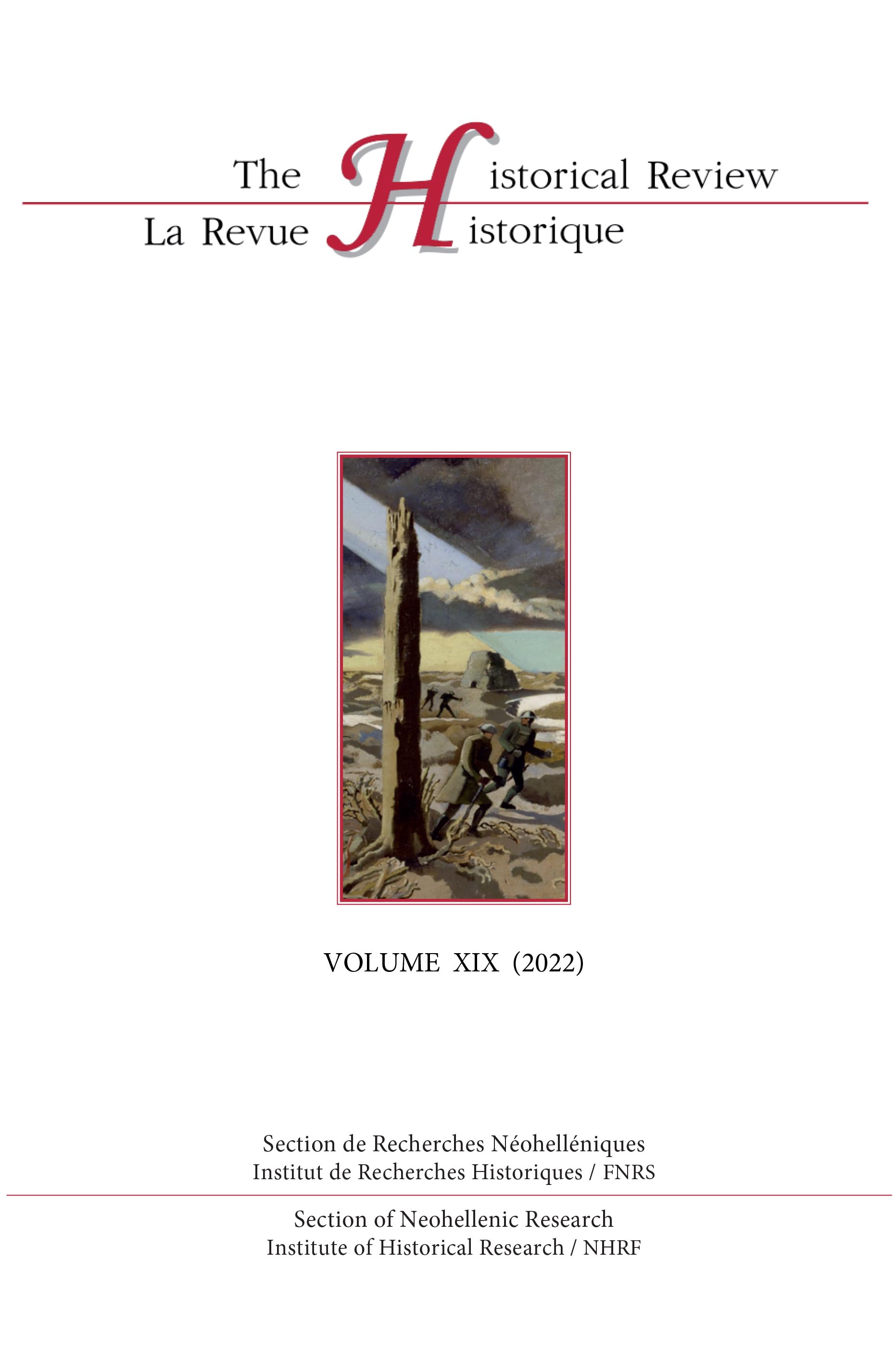The “War on the Goat”: Forestry, Husbandry and Politics in Early Modern Greece
Abstract
This article examines the conflict over forest use in modern Greece. While the
main protagonists were foresters, who prioritised the importance of forests in providing
timber, and those involved in animal husbandry, who needed the forests as grazing
grounds, a number of other societal and political actors also engaged in this century-long
struggle, which culminated in the 1937 decision to remove goats from Greek forests. It
shows how the Greek foresters succeeded in framing the goat and goat rearing as the
symbol of the country’s deforestation but also underdevelopment, both in economic and
in cultural terms. Also, from the 1920s onwards, the large goat herds stood in the way of
the development of the Greek agricultural sector: the extensive and free-roaming animal
husbandry was viewed as an opponent of the state-sponsored and -endorsed settled farmer,
who would help Greece in securing the desperately sought σιτάρκεια (grain sufficiency).
Once Ioannis Metaxas seized power and established his authoritarian 4 August regime,
which placed special emphasis on the agricultural development of the country, the fate of
the goat was sealed: the “horned Satan” had to die, not just for the sake of the forests but,
according to Metaxas himself, for the very survival of the Greek people.
Article Details
- How to Cite
-
Giorgos Kostopoulos, & Botetzagias, I. (2023). The “War on the Goat”: Forestry, Husbandry and Politics in Early Modern Greece. The Historical Review/La Revue Historique, 19(1), 47–76. Retrieved from https://ejournals.epublishing.ekt.gr/index.php/historicalReview/article/view/35055
- Section
- Special Section I / Section spéciale I. Conflict and the Environment

This work is licensed under a Creative Commons Attribution-NonCommercial-ShareAlike 4.0 International License.
The copyright for articles in this journal is retained by the author(s), with first publication rights granted to the journal. By virtue of their appearance in this open access journal, articles are free to use with proper attribution in educational and other non-commercial sectors. The Historical Review/La Revue Historique retains the right to publish papers that appear in the journal in collective volumes published by the Institute for Neohellenic Research/National Hellenic Research Foundation.
Sample acknowledgement: Reprinted with permission from the author. Original publication in the The Historical Review/La Revue Historique www.historicalreview.org
This work is licensed under a Creative Commons Attribution-NonCommercial-ShareAlike 4.0 Greece License. To view a copy of this license, visit http://creativecommons.org/licenses/by-nc-sa/4.0/ or send a letter to Creative Commons, 543 Howard Street, 5th Floor, San Francisco, California, 94105, USA



